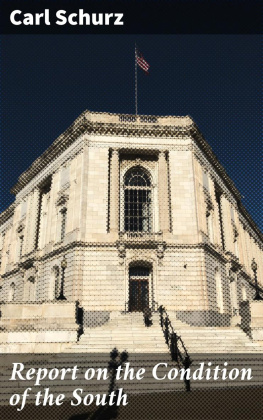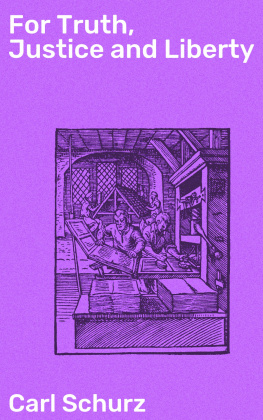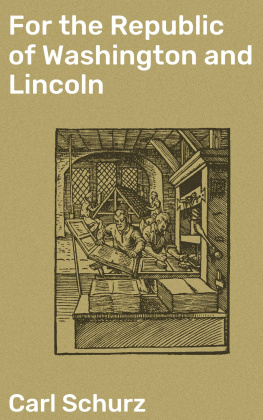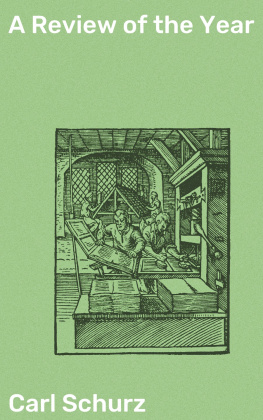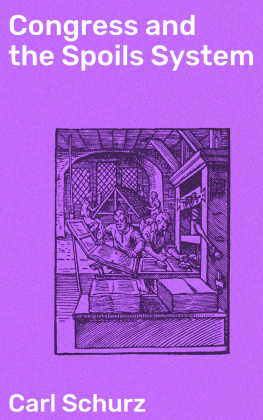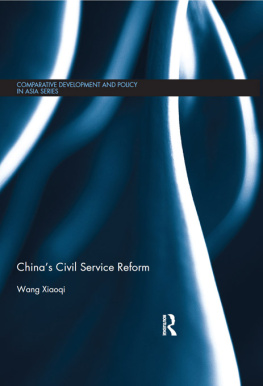The Necessity and Progress of Civil Service Reform
Table of Contents
An Address delivered at the Annual Meeting of the National Civil Service Reform League at Chicago, Ill., December 12, 1894.
This is the first time that the National Civil Service Reform League holds its annual meeting near the great Mississippi Valley; but we know that its cause is no stranger here. Not only has it in this region some of its most faithful advocates, but the practical sense and the public spirit which have wrought here such wonders, seem to produce the very atmosphere in which this cause should prosper; for Civil Service Reform is, in the sense of an enlightened, large and patriotic public spirit, a preminently practical conceptionpractical in its principles, practical in its aims, and practical in its methods.
What Civil Service Reform demands, is simply that the business part of the Government shall be carried on in a sound, businesslike manner. This seems so obviously reasonable that among people of common sense there should be no two opinions about it. And the condition of things to be reformed is so obviously unreasonable, so flagrantly absurd and vicious, that we should not believe it could possibly exist among sensible people, had we not become accustomed to its existence among ourselves. In truth, we can hardly bring the whole exorbitance of that viciousness and absurdity home to our own minds unless we contemplate it as reflected in the mirror of a simile.
Imagine, then, a bank the stockholders of which, many in number, are divided into two factionslet us call them the Jones party and the Smith partywho quarrel about some question of business policy, as, for instance, whether the bank is to issue currency or not. The Jones party is in control, but the Smith men persuade over to their side a sufficient number of Jones men to give themthe Smith mena majority at the next stockholders' meeting. Thus they succeed in getting the upper hand. They oust the old board of directors, and elect a new board consisting of Smith men. The new Smith board at once remove all the officers, president, cashier, tellers, bookkeepers, and clerks down to the messenger boysthe good and the bad alikesimply because they are Jones men, and fill their places forthwith with new persons who are selected, not on the ground that they have in any way proved their fitness for the positions so filled, but simply because they are Smith men; and those of the Smith men who have shown the greatest zeal and skill in getting a majority of votes for the Smith party are held to have the strongest claims for salaried places in the bank. The new men struggle painfully with the duties novel to them until they acquire some experience, but even then it needs in many instances two men or more to do the work of one.
In the course of events dissatisfaction spreads among the stockholders with the Smith management, partly shared by ambitious Smith men who thought themselves entitled to reward in the shape of places and salaries, but were left out in the cold. Now the time for a new stockholders' meeting arrives. After a hot fight the Jones party carries the day. Its ticket of directors being elected, off go the heads of the Smith president, the Smith cashier, the Smith tellers, the Smith bookkeepers and clerks, to be replaced by true-blue Jones men who have done the work of the campaign and are expected to do more of it when the next election comes. And so the career of the bank goes on with its periodical changes of party in power at longer or shorter intervals, and its corresponding clean sweeps of the bank service, with mismanagement and occasional fraud and peculation as inevitable incidents.
You might watch the proceedings of such a banking concern with intense curiosity and amusement. But I ask you, what prudent man among you would deposit his money in it or invest in its stock? And why would you not? Because you would think that this is not sensible men's business, but foolish boys' play; that such management would necessarily result in reckless waste and dishonesty, and tend to land many of the bank's officers in Canada, and not a few of its depositors or investors in the poorhouse. Such would be your judgment, and in pronouncing it you would at the same time pronounce judgment upon the manner in which the business part of our national Government, as well as of many if not most of our State and municipal governments, has been conducted for several generations. This is the spoils system. And I have by no means presented an exaggerated or even a complete picture of it; nay, rather a mild sketch, indicating only with faint touches the demoralizing influences exercised by that system with such baneful effect upon the whole political life of the nation.
Looking at the financial side of the matter aloneit is certainly bad enough; it is indeed almost incomprehensible how the spoils system could be permitted through scores of years to vitiate our business methods in the conduct of the national revenue service, the postal service, the Indian service, the public-land service, involving us in indescribable administrative blunders, bringing about Indian wars, causing immense losses in the revenue, breeding extravagant and plundering practices in all Departments, costing our people in the course of time untold hundreds of millions of money, and making our Government one of the most wasteful in the world. All this, I say, is bad enough. It might be called discreditable enough to move any self-respecting people to shame. But the spoils system has inflicted upon the American people injuries far greater than these.
The spoils system, that practice which turns public offices, high and low, from public trusts into objects of prey and booty for the victorious party, may without extravagance of language be called one of the greatest criminals in our history, if not the greatest. In the whole catalogue of our ills there is none more dangerous to the vitality of our free institutions.
It tends to divert our whole political life from its true aims. It teaches men to seek something else in politics than the public good. It puts mercenary selfishness as the motive power for political action in the place of public spirit, and organizes that selfishness into a dominant political force.
It attracts to active party politics the worst elements of our population, and with them crowds out the best. It transforms political parties from associations of patriotic citizens, formed to serve a public cause, into bands of mercenaries using a cause to serve them. It perverts party contests from contentions of opinion into scrambles for plunder. By stimulating the mercenary spirit it promotes the corrupt use of money in party contests and in elections.
It takes the leadership of political organizations out of the hands of men fit to be leaders of opinion and workers for high aims, and turns it over to the organizers and leaders of bands of political marauders. It creates the boss and the machine, putting the boss into the place of the statesman, and the despotism of the machine in the place of an organized public opinion.
It converts the public officeholder, who should be the servant of the people, into the servant of a party or of an influential politician, extorting from him time and work which should belong to the public, and money which he receives from the public for public service. It corrupts his sense of duty by making him understand that his obligation to his party or his political patron is equal if not superior to his obligation to the public interest, and that his continuance in office does not depend on his fidelity to duty. It debauches his honesty by seducing him to use the opportunities of his office to indemnify himself for the burdens forced upon him as a party slave. It undermines in all directions the discipline of the public service.




